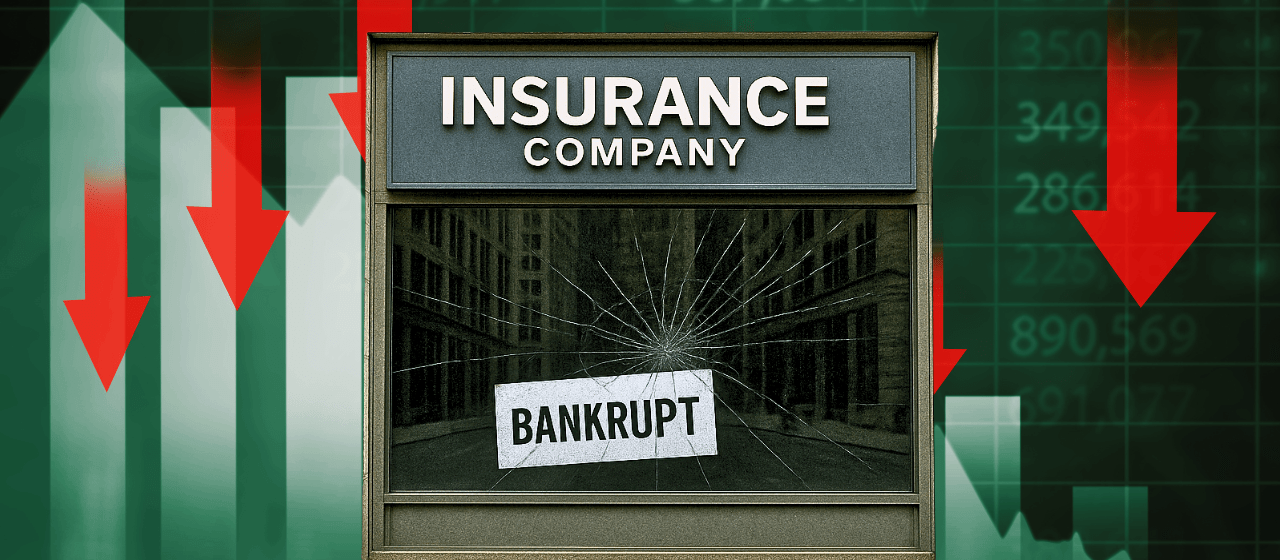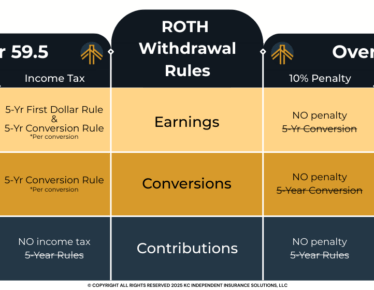Understanding Hybrid Pensions and Annuity Protection and How They Protect Your Retirement Income Strategies
One of the most common concerns we hear from clients—especially those considering hybrid pensions or annuities—is this: “What happens if the insurance company goes bankrupt?”
It’s a fair and essential question. Given what happened with institutions like Silicon Valley Bank or even major corporate failures like Lehman Brothers, the fear of insolvency is real for many retirees. Let’s walk through this concern together and help you feel more confident in how these retirement income strategies are built and protected.
How Insurance Companies Differ from Banks
We’ve all seen how fast a bank can go under when panic sets in. Silicon Valley Bank, for example, collapsed quickly because its depositors—many of them large businesses—withdrew their funds en masse. Banks hold checking and savings accounts that can be accessed immediately, and when everyone rushes for the exit, it’s game over.
But here’s where insurance companies differ fundamentally:
- Clients cannot pull out all their funds instantly.
- Most premiums (for health, life, or annuities) are contractually committed and not designed for liquidity.
- Insurance companies are built to manage long-term liabilities, not short-term withdrawals.
In other words, there is no such thing as a “run on an insurance company” the way there can be on a bank.
What If Their Investments Go Bad?
Yes, insurance companies do invest the money they manage—but very conservatively.
- The majority of an insurer’s portfolio is in high-grade bonds.
- Only 10–15% might be in mortgage loans.
- Equities and real estate generally make up a very small portion—often less than 2%.
They need to keep their reserves liquid because their main responsibility is to pay claims. This means their exposure to risky assets is minimal compared to banks or hedge funds.
But What About Natural Disasters or Major Events?
Great question. While natural disasters can absolutely strain property and casualty insurers (like those that handle home or auto policies), that’s not the division offering hybrid pensions or annuities. The products we recommend are issued by life and health insurance companies, not the property and casualty side.
And even in cases where an insurance company offers both, the state requires separate licenses, separate reserves, and separate divisions—so a catastrophic event in one arm of the company doesn’t necessarily affect the other.
State Guaranty Associations: The FDIC of Insurance
Just like banks are protected by the FDIC, insurance companies are backed by State Guaranty Associations. These are state-run safety nets designed to protect policyholders in case an insurance company becomes insolvent. Each state has its own coverage limits (commonly $250,000 to $300,000 per annuity), and we always help our clients stay within those protected limits—or diversify across carriers if needed.
What About Lehman Brothers or Enron?
We’re often asked about high-profile collapses like Lehman Brothers and Enron. While many of their 401(k) participants lost significant value due to stock exposure, employees with traditional pensions still received their benefits. That’s because pensions and hybrid pensions are structured as insurance contracts. And unlike speculative investments, these contracts are backed by actuarial science—not market performance.
Hybrid Pension vs. Traditional Pension
Let’s clarify the difference:
- A traditional pension gives you guaranteed income for life—but no access to your money, no flexibility, and typically no ability to pass anything on to your beneficiaries.
- A hybrid pension offers that same lifetime guaranteed income, but also gives you:
- Access to a cash value
- Growth potential
- Legacy options for beneficiaries
- And importantly, the option to cash out if needed.
So if you ever felt uncomfortable with a particular insurance carrier, you wouldn’t be locked in. That flexibility gives many of our clients peace of mind.
So Why Haven’t I Heard of This Before?
Unfortunately, many advisors on Wall Street don’t talk about hybrid pensions. Why? Because they can’t charge management fees on guaranteed income products like fixed or indexed annuities. (The only exception is variable annuities—which, for several reasons, we generally do not recommend due to higher fees and market risk.)
The Real Risk: Outliving Your Money
At the end of the day, the biggest fear most retirees face isn’t insolvency. It’s running out of money. Social Security often doesn’t provide enough to cover even basic living expenses. And while investment portfolios are important, relying on them alone—without any guaranteed income—can be stressful, especially during market downturns. That’s why we believe in incorporating hybrid pensions. They provide the predictability of a paycheck in retirement, just like you had while working, but with added control and flexibility.

Why KCIIS Recommends Hybrid Pensions
- Insurance companies are structured to withstand shocks, unlike banks.
- Your funds are protected up to state-guaranteed limits.
- Hybrid pensions provide lifetime income with access, growth, and legacy options.
- In the event of poor performance or company discomfort, you can pivot—you’re not locked in forever.
- Most importantly, you gain peace of mind that you’ll never outlive your income.
If you’re still unsure or want to explore how a hybrid pension might fit into your retirement plan, we’re here to walk through it with you. Let’s make sure your future is not just secure—but predictable.
Contact Us Get in Touch
Have a question or feedback?
Fill out the form below, and we’ll respond promptly!

By providing your name and contact information, you are consenting to receive calls, text messages, and/or emails from a licensed insurance agent about Medicare Plans at the number provided. You agree that such calls and/or text messages may use an auto-dialer or robocall, even if you are on a government do-not-call registry. This agreement is not a condition of enrollment.
Not connected with or endorsed by the United States government or the federal Medicare program. This is a solicitation of insurance, and your response may generate communication from a licensed producer/agent.



